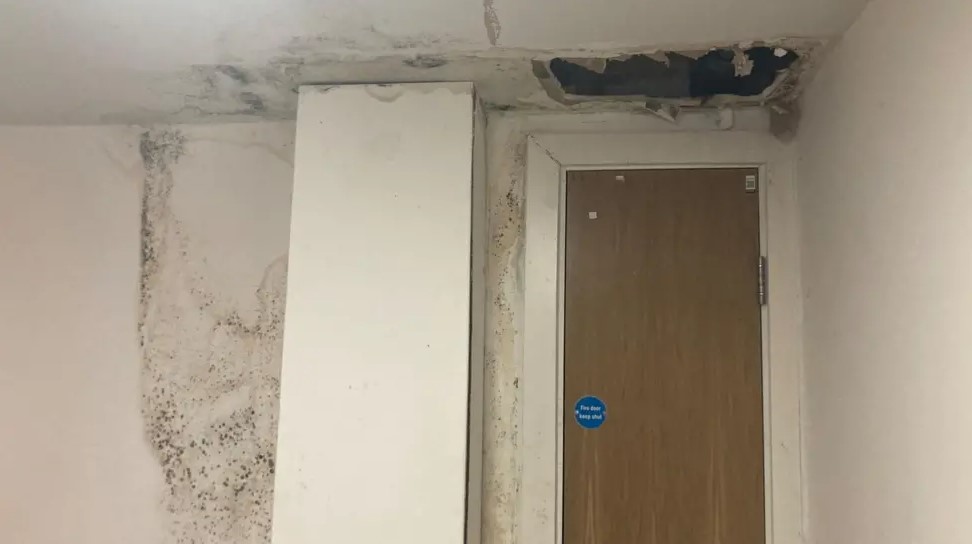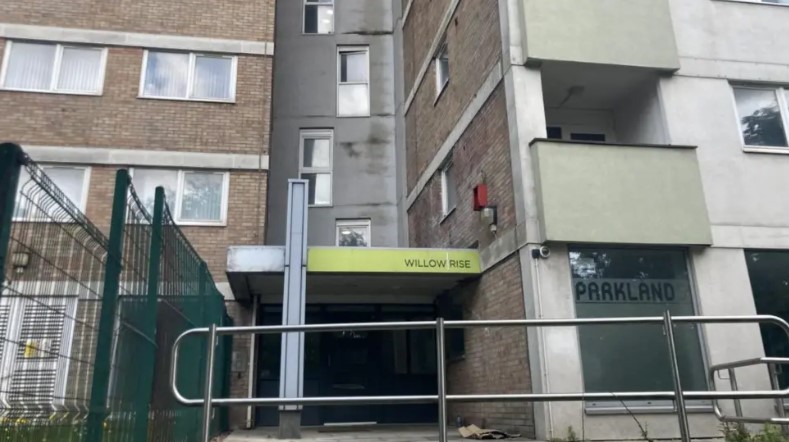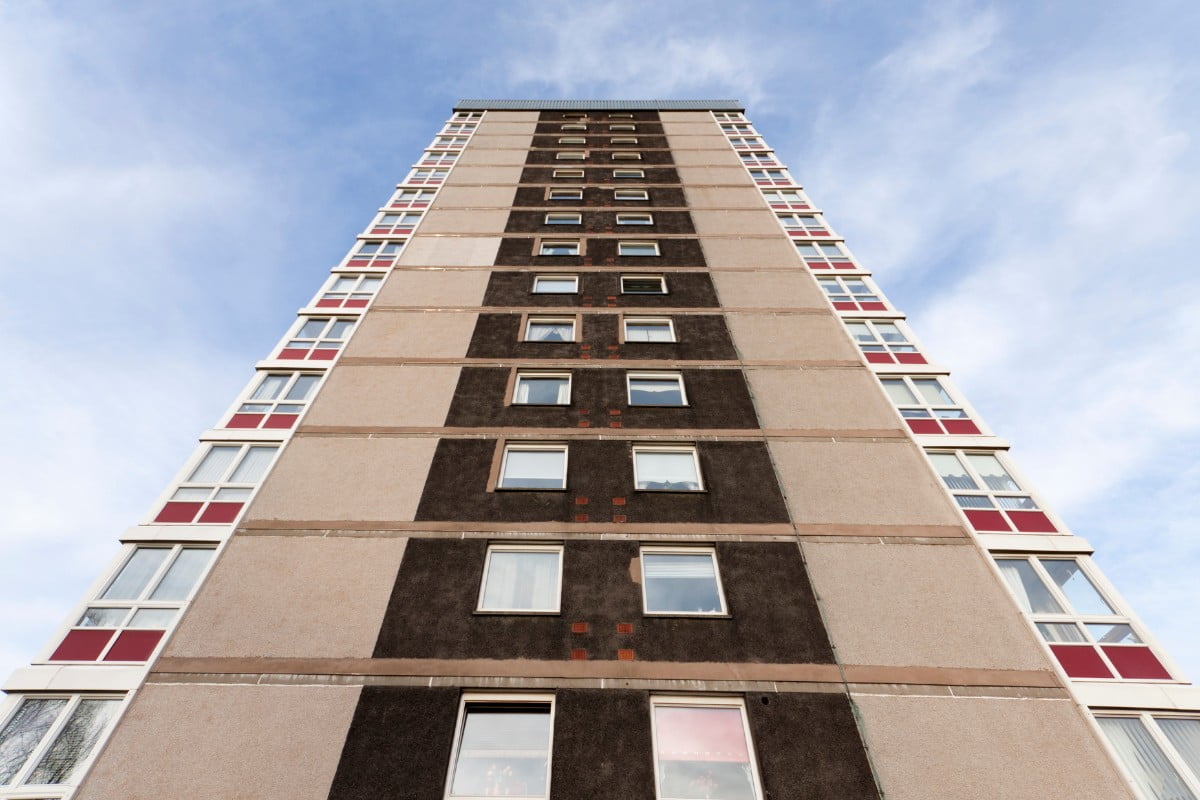Grenfell Tower tragedy eight years on
This June marked eight years since the Grenfell Tower fire in Kensington, West London. Eight years since 72 people were killed in one of the most horrific acts of social murder in recent memory.
And yet to this day not a single person – not from the council, the government, the construction contractors, nor the cladding manufacturers – has been charged.
This scandal has recently been thrown back into the spotlight, following the release of the recent Netflix documentary Grenfell: Uncovered which reached the top 10 most viewed shows in the UK last month.

In this 100-minute film, we hear the harrowing stories of survivors, eyewitnesses, and experts. Viewers are left with the gut-wrenching rage at the fact that this catastrophe was entirely avoidable.
Conveniently for those responsible, the Labour deputy prime minister Angela Rayner has announced plans to tear down the old site, removing this tangible reminder of capitalist failure, and attempting to bury the memory of the 72 dead and the thousands still at risk.
Grenfell United, a group which represents survivors and bereaved families, have opposed this decision, and said it is “disgraceful and unforgivable” that their wishes have been completely ignored.
But, despite the wishes of those who would rather brush this tragedy under the carpet, the scandal is far from over.
There are still countless properties using the same cladding, and which are therefore vulnerable to the same disaster. Tenants and homeowners across the country continue to live in fear while the government sits on its hands, and the private developers dodge responsibility.
Grenfell wasn’t an anomaly. It is the result of a system that puts profit before people. We saw this with Grenfell; we saw this with the RAAC crisis; and with the ongoing risk of asbestos in building walls that are “too expensive” to replace.
As long as housing and infrastructure are treated as commodities instead of rights, these atrocious disasters will continue. Even if some individuals were held accountable, that doesn’t fix the system that let it happen.
Only by planning the economy for social need rather than profit can we put an end to these disasters.
Dan Rhodes, Kensington
Kirkby flats: “Another Grenfell in the making”
“It’s another Grenfell in the making.”
These are the words of a Kirkby resident in a Sky News interview, after hundreds of residents in Merseyside received the devastating news that they risk being made homeless in the coming weeks.

A letter was sent out by Knowsley Council, saying that Willow Rise and Beech Rise have been deemed unsafe and a serious hazard by the Merseyside Fire and Rescue Service (MFRS) and that the buildings must be closed.
Pictures and videos have surfaced online that reveal serious water damage, leaks in electrical cupboards, shoddy repairs, a long-time out-of-order lift, spools of exposed wires, and pervasive black mould.
“Everything is being taken away from me. Being told to leave so suddenly without any guarantees is traumatic,” said one resident and homeowner, Arunee Leerasiri.
“I have home insurance but they say because the problem is not with my flat but with the communal areas, I am not covered,” she pointed out. “The stress has been overwhelming. I am not classed as homeless yet so it’s hard to find help. How are we expected to live like this?”
The companies responsible for these degrading conditions are now responsible for turfing people out with no mind paid to where they will live!
Rather than closing the building down immediately, the building managers employed a fire patrol which must be active 24 hours a day. It didn’t take long, however, for the managers to claim to have run out of money and pass that burden on to Knowsley Council.
This means that the failures of these profiteering parasites are now costing the taxpayers of Knowsley £3,000 per day.
This is yet another example of how basic human needs are disregarded under this profit-driven system.

It’s no coincidence that this travesty has unfolded in Kirkby, which is one of the most deprived areas in the country. According to government research, in 2024 over 35 percent of children in Kirkby live in poverty, and the town is among the 10 percent most deprived places nationally.
Clearly, the billionaire developers and property owners thought that they could treat these working-class residents no better than dirt on their shoe.
Kirkby has a strong and radical history of class struggle. We have the inspiring example of the Kirkby rent strike in 1972, where they resisted the Tories’ Housing Services Act which would have raised rents in the area.
3,000 working-class tenants organised with regular meetings and support groups for any resident who faced harassment by the police or courts. This strike is the focus of the 1979 documentary by Nick Bloomfield Behind the Rent Strike, which all readers are encouraged to watch.
While a rent strike might not be the most effective means of struggle in this situation – with the flats being in the process of evacuation – these methods of broad, politicised struggle show the way forward.
Workers and tenants mobilised in this way would have the power to put demands on the council, the developers, and the government: to be rehoused in good-quality homes of their choosing, and for compensation for the endless failures of the owners of Beech and Willow Rise.
But to prevent these scandals for good, we need to go further. We must expropriate the land, construction companies, and these criminal developers, in order to democratically plan social housing in the interests of communities, not corporations.
Jane Thomas, Liverpool
Labour’s housing ‘plan’ set to destroy green spaces

Labour’s ‘Planning and Infrastructure Bill’ is being sold as a housing solution for working families. But in reality, this bill is an unnecessary attack on our green spaces, for the benefit of the capitalist class.
According to recent analysis, over 5,000 of England’s most sensitive and protected habitats – including ancient woodlands, chalk streams, and rare wetlands – face destruction under this legislation.
This isn’t an unfortunate accident – it’s by design. The nature restoration credit scheme in the bill sets out a ‘cash-to-trash’ scheme, allowing developers to pay into a fund to supposedly ‘offset’ the environmental damage, rather than meet environmental protections.
Sites such as the New Forest, the Itchen River, and ancient woodlands in Kent are now open to exploitation.
Labour claims this is a ‘balance’ between nature and housing. In truth, it is class war waged with bulldozers. Environmental charities, scientists, and even the government’s own environmental watchdog warn that this bill rolls back 40 years of environmental regulations.
Labour’s drive to build 1.5 million homes and approve 150 major infrastructure projects – which is a pipe dream on the basis of Britain’s decrepit industry – is being used to justify these sweeping changes.
None of this is about homes for those in need. These are properties for profit, not people – they are often unaffordable, and disconnected from social needs and the wishes of local communities.
According to recent government figures, there are around 700,000 properties that are empty and unfurnished, yet around 300,000 people are homeless in Britain. Why don’t we start by expropriating all the empty homes from the profiteers and parasites?
The real obstacle to housing is capitalism: land hoarding, speculative building, and a profit-driven housing market.
So long as land and housing remain commodities, subject to the logic of the market and private profit, both people and our natural spaces will be cast to one side by the capitalists.
On the basis of socialist planning there’d be no need to treat housing and the environment as competing priorities. We can build millions of high-quality, low-cost homes when and where they’re needed.
Kim Tin-u, Canterbury
Engels and Connolly on housing
 “There are already in existence sufficient buildings for dwellings in the big towns to remedy immediately any real ‘housing shortage,’ given rational utilisation of them. This can naturally only take place by the expropriation of the present owners and by quartering in their houses the homeless or those workers excessively overcrowded in their former houses.”
“There are already in existence sufficient buildings for dwellings in the big towns to remedy immediately any real ‘housing shortage,’ given rational utilisation of them. This can naturally only take place by the expropriation of the present owners and by quartering in their houses the homeless or those workers excessively overcrowded in their former houses.”
– Friedrich Engels, The Housing Question (1872)
“Our cities can never be made really habitable or worthy of an enlightened people while the habitations of its citizens remain the property of private individuals. To permanently remedy the evils of city life the citizens must own their city.”
– James Connolly, Workers’ Republic (1899)






